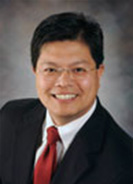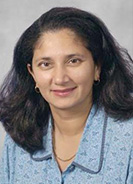Count on University Health in San Antonio for advanced treatments for your child, teen or young adult with cancer.
Individualized Cancer Treatments
Your doctor will create a custom plan to manage your child’s cancer. The treatment plan considers:
- Specific cancer type
- Cancer’s location
- Tumor size
- Cancer stage (how far it has spread)
- Age at diagnosis
Ask your doctor to explain your child’s cancer so you can make informed treatment choices.
Types of Pediatric Cancer Treatments
Your child’s cancer type may require one kind of treatment or a combination of treatments.
Surgery
Surgeons treat cancer by removing it from your child’s body. Depending on the type of cancer and its stage, a surgeon may remove the entire tumor and surrounding tissue or part of the tumor and tissue. Removing tumors can reduce cancer symptoms and pain.
Brain and Spinal Tumor Surgery
Rely on our highly skilled pediatric neurosurgeon and orthopedic surgeon to treat brain and spinal tumors. Orthopedic oncologists operate on bone and soft tissue.
Transplants for Liver Cancer
If surgeons cannot remove a large liver tumor, the best treatment for your child may be liver transplant. Rest assured; our pediatric liver transplant program is one of the largest programs in Texas and has experienced surgeons.
Chemotherapy
Chemotherapy (chemo) is a common treatment for cancer. It uses medications to:
- Kill fast-growing cancer cells
- Stop or slow the growth of cancer cells
- Shrink tumors to ease pain
Your child may receive chemotherapy:
- Orally, by mouth as a pill or liquid
- By an injection (shot)
- By infusion, or through an IV into a vein
- Intrathecally, or into the spine
Immunotherapy
Immunotherapy, sometimes called biological therapy, helps the immune system fight cancer. It works by increasing the immune system’s ability to detect or attack cancer cells. Talk to your care team about which type of immunotherapy your child may receive.
Targeted Therapy
Targeted drugs affect how cancer cells grow, divide and spread. Doctors use targeted therapies to treat a variety of pediatric cancers.
Radiation Therapy
Radiation therapy uses high-energy beams to destroy or damage cancer cells. Trust us to treat cancer while avoiding healthy tissue for better long-term outcomes.
A radiation oncologist plans your child’s care, including the type and dose of radiation and the number of treatments.
Radiation therapy takes place at Mays Cancer Center. The center is a partnership between UT Health San Antonio and MD Anderson Cancer Center.
Treatment Side Effects
Treatment affects every child, adolescent and young adult differently. Talk to your cancer care team about the side effects your child may experience based on his or her type of treatment, dose and location of cancer. Your care team may recommend complementary and alternative medicine to ease side effects.
Clinical Trials
If your child qualifies for a clinical trial, they may receive a promising new cancer treatment before it’s widely available.



